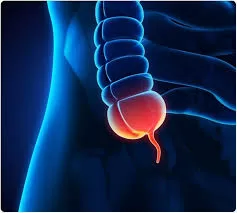While popular fad diets such as keto-like low carbohydrate and high fat (LCHF) diets may help with weight loss, they may not be good for heart health, according to recent findings by researchers from the University of British Columbia (UBC). Health experts emphasized the potential dangers of these diets on Sunday.
A UBC-led study has shown that following an LCHF diet is linked to increased levels of low-density lipoprotein (LDL) cholesterol, commonly known as the “bad” cholesterol, and apolipoprotein B, a marker for heart disease risk. The study also found a higher incidence of major adverse cardiovascular events (MACE) among LCHF diet followers. These events include heart attacks, strokes, and other severe cardiovascular issues.
The study, published in JACC: Advances, involved 305 LCHF diet participants and 1,220 individuals on a standard diet. Results indicated that 11.1% of LCHF participants had severe hypercholesterolemia—markedly high levels of cholesterol in the blood—compared to 6.2% of those on a standard diet. After an average follow-up period of 11.8 years, 9.8% of the LCHF group experienced a MACE, nearly double the 4.3% observed in the standard diet group.
“There is a popular belief these days that carbohydrates should be reduced in the diet. Some people are also advocating consuming a low-carbohydrate and high-fat diet. It may lead to weight loss but is associated with increased bad cholesterol (LDL) and also increased cardiovascular MACE events, which means that the risk of heart attack, stroke, and deaths from heart attacks increase,” said Dr. Ashwani Mehta, Senior Consultant at Sir Ganga Ram Hospital’s Department of Cardiology, in an interview with IANS.
Dr. Mehta emphasized that the latest study highlights the potential life-threatening risks linked to diets high in fat, which can disrupt lipid parameters.
This study follows previous research presented at the American College of Cardiology’s 2023 annual scientific session, which also indicated that a “keto-like” diet might elevate “bad” cholesterol levels and double the risk of cardiovascular events such as angina, blocked arteries, heart attacks, and strokes.
Health experts strongly recommend against following fad diets. Instead, they advocate for healthier, more balanced dietary approaches to weight loss.
“The low carbohydrate and high-fat diet is more harmful to the heart because it leads to more ketones generation and higher incidence of bad cholesterol, which we call LDL and apolipoprotein B, increasing the risk of cardiovascular disease and the progression of heart disease,” explained Dr. Udgeath Dhir, Senior Director of Cardiothoracic Vascular Surgery at Fortis Memorial Research Institute in Gurugram.
Dr. Dhir advocates for a balanced diet rich in vegetables and fruits, and moderate consumption of animal proteins and fats, drawing attention to the Mediterranean diet as a model. This diet includes a healthy mix of carbohydrates, proteins, and fats, with fats constituting no more than 10 to 15 percent of the diet.
“Try to have more plant-based products,” Dr. Dhir advised. “A mixture of all the colors of the rainbow in your platter is an ideal diet, and you would not require any supplements. That would be a healthy diet for your heart and your whole body.”












